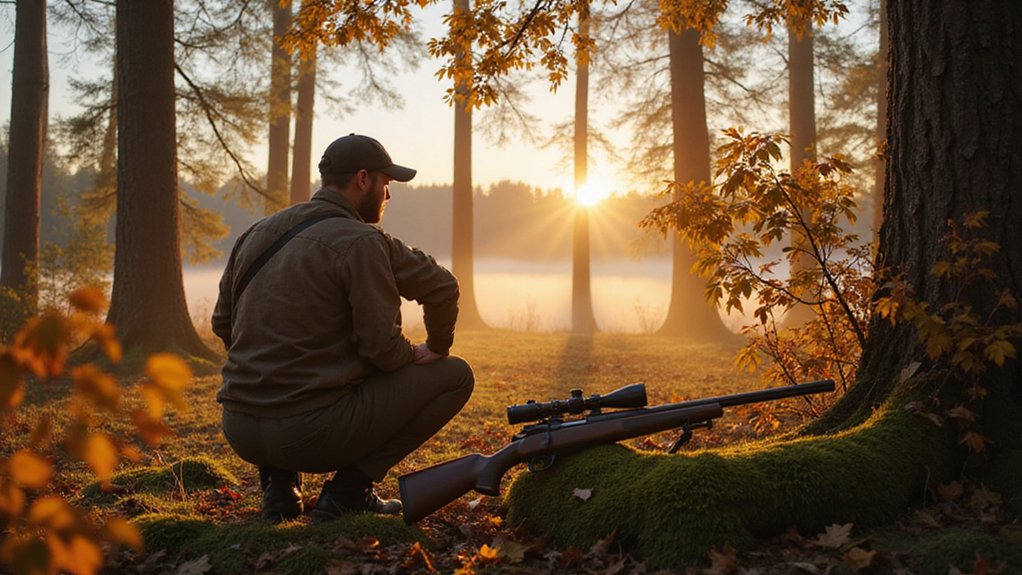If you’re considering starting your hunting journey, there are several key aspects you need to grasp first. Understanding local regulations, essential gear, and safe practices will set a solid foundation for your experience. But before you rush into the field, it’s vital to know what techniques suit your skills and how to prepare effectively. The next steps could make all the difference on your first hunt. What will you discover next?
How to start hunting: What do you need to know first?
Before you grab your gear and head into the woods, it’s essential to understand the basics of hunting. First, familiarize yourself with local hunting regulations. Each area has specific rules regarding seasons, permitted species, and licensing requirements.
Next, learn about the different types of hunting, such as big game or small game, to determine your focus. Safety is paramount, so always prioritize firearm safety and wear appropriate gear.
Understanding animal behavior and tracking techniques will greatly improve your chances of success. Finally, respect the environment and practice ethical hunting to guarantee a sustainable experience for future hunters.
What gear is essential for beginner hunters?
Choosing the right gear is essential for beginner hunters, as it can greatly affect your comfort and success in the field. Start with a reliable firearm or bow suited to your target game. Don’t forget ammunition or arrows!
Invest in quality binoculars for spotting game and a good backpack for carrying your essentials. Proper clothing, including weather-appropriate layers and durable boots, will keep you comfortable. A hunting knife is vital for field dressing.
Finally, consider safety gear like an orange vest and ear protection. With the right equipment, you’ll feel prepared and confident as you begin your hunting adventure.
Where can you find hunting opportunities near you?
Where can you find hunting opportunities near you? Start by exploring local resources to uncover great spots.
Here are four ways to connect with hunting opportunities:
- State Wildlife Agencies: Check their websites for public land maps and hunting regulations.
- Hunting Clubs: Join local clubs or organizations to meet experienced hunters and find guided hunts.
- Online Forums: Participate in hunting forums where members share tips and locations.
- Social Media: Follow local hunting pages or groups to discover events and meet-ups.
What are the basic hunting safety rules?
Guaranteeing your safety while hunting is essential, especially since you’re often in remote areas with potential hazards.
Always treat your firearm as if it’s loaded, keeping your finger off the trigger until you’re ready to shoot. Wear blaze orange to increase visibility to others. Identify your target and what’s beyond it before pulling the trigger.
Never hunt alone; always have a buddy system in place. Stay aware of your surroundings and avoid alcohol before and during your hunt.
Finally, familiarize yourself with local laws and regulations. Following these rules can help guarantee a safe and enjoyable hunting experience.
How do you choose the right hunting technique for your skills?
How do you determine the best hunting technique for your skills?
Start by evaluating your strengths and preferences.
Consider these factors:
- Experience level: Are you a novice or have some background?
- Physical fitness: Can you handle long treks or prefer stationary setups?
- Weapon choice: Do you feel comfortable with a bow, rifle, or shotgun?
- Target species: What animals are you interested in pursuing?
Why is understanding wildlife behavior important for hunters?
Understanding wildlife behavior is essential for hunters, as it directly impacts your success in the field. When you grasp how animals move, feed, and react to their environment, you can better anticipate their actions.
This knowledge allows you to choose the right time and place for your hunt, increasing your chances of encountering game. Additionally, recognizing signs like tracks or feeding areas helps you identify where animals are likely to be.
Ultimately, understanding wildlife behavior transforms you from a mere observer into a strategic hunter, enhancing both your skills and overall experience in the great outdoors.
What steps should you follow to prepare for your first hunt?
Before you head out for your first hunt, it’s important to take several preparatory steps that will set you up for success.
Follow these steps to guarantee you’re ready:
- Choose Your Equipment: Pick the right firearm or bow, and make sure you have necessary gear like camouflage, boots, and a backpack.
- Practice Shooting: Spend time at the range to improve your accuracy and comfort with your weapon.
- Scout Locations: Familiarize yourself with the hunting area and look for signs of wildlife.
- Plan Your Trip: Arrange transportation, check the weather, and inform someone about your plans.
With these steps, you’ll feel more confident and prepared.
How can you stay informed about hunting regulations and updates?
Staying informed about hunting regulations and updates is essential for every hunter, especially since laws can change frequently.
To keep up, regularly check your state’s wildlife agency website for the latest rules and announcements. Subscribe to newsletters or follow them on social media for real-time updates.
Joining local hunting clubs can also provide valuable insights and foster connections with experienced hunters who share information.
Additionally, consider attending workshops or seminars to deepen your understanding of regulations and ethical hunting practices.
